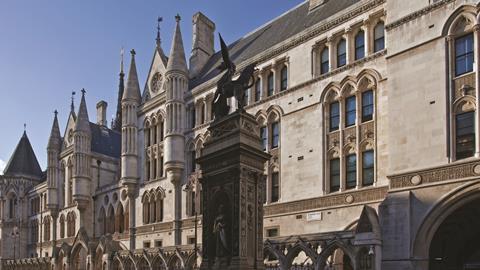It is well established that a case management decision will not be interfered with or reversed by appellate courts unless it was, as Lord Neuberger put it in Global Torch Ltd v Apex Global Management Ltd (No. 2) [2014] UKSC 64 (approving of the test in Broughton v Kop Football (Cayman) Ltd [2012] EWCA Civ 1743), ‘plainly wrong in the sense of being outside the generous ambit where reasonable decisions-makers may disagree’. Even if there was a serious procedural irregularity, the Court of Appeal would only allow the appeal and order a retrial if satisfied that the decision of the judge was ‘unjust’ (see CPR 52.21(3)(b)) and this will ultimately depend on ‘all the circumstances of the case’ (per Clarke LJ in Hayes v Transco Plc [2003] EWCA Civ 1261).

An important issue of procedural justice arose in the Court of Appeal case of Simou v Salliss [2017] EWCA Civ 312: was the trial judge wrong to refuse two applications to adjourn the trial of two actions which were heard together over 10 days because of the (alleged) ill-health of the first defendant, MS? The power to adjourn a hearing is expressly included in the list of case management powers contained in CPR 3.1(2) (b). The power must be exercised in accordance with the overriding objective of enabling the court to deal with cases justly and at proportionate cost (CPR 1.1(1)).
The matter concerned a boundary dispute between the parties. The defendants (MS and his wife, HS) were litigants in person, although they had instructed lawyers at various stages in the proceedings and were represented at the appeal. The trial judge found in favour of the claimant and the defendants appealed on the ground that the trial judge had refused to adjourn the trial on the ground of MS’s ill-health. The relief sought by the defendants was a retrial.
The first informal application requesting an adjournment was made by HS in the week before the start of the trial. She stated that MS had been receiving treatment for bladder cancer and was not well enough to defend himself. Although the court staff had indicated that the application would be brought to the judge’s attention, it was unclear whether the application ever reached the judge. On the first day of the trial, the application was implicitly refused because the judge proceeded with the trial in MS’s absence. A further application was made during the second week of the trial and after MS had had to go to hospital due to serious health issues. The application to adjourn was refused. The appellant argued that the first adjournment application was never properly considered or ruled upon by the trial judge and, in refusing the second application, the judge had become fixated on a discharge letter from the hospital, which demonstrated that MS was no longer suffering from cancer, and that vitiated his ability to assess the position in the round.
Giving the lead judgment in which the appeal court dismissed the appeal, Henderson LJ noted the general principles concerning case management, including CPR 3.1A (case management – unrepresented parties), which obliges the court to adopt ‘such procedure at any hearing as it considers appropriate to further the overriding objective’ where one of the parties to the proceedings is unrepresented. His lordship also referred to the principles concerning medical evidence as stated by Norris J in Levy v Ellis-Carr [2012] EWHC 63 (Ch) at [36], which were endorsed by the appeal court in Forresters Ketley v Brent [2012] EWCA Civ 324.
Referring to the medical evidence before him, Norris J stated: ‘In my judgment it falls far short of the medical evidence required to demonstrate that the party is unable to attend a hearing and participate in the trial. Such evidence should identify the medical attendant and give details of his familiarity with the party’s medical condition (detailing all recent consultations), should identify with particularity what the patient’s medical condition is and the features of that condition which (in the medical attendant’s opinion) prevent participation in the trial process, should provide a recent prognosis, and should give the court some confidence that what is being expressed is an independent opinion after a proper examination. It is being tendered as expert evidence. The court can then consider what weight to attach to that opinion, and what arrangements might be made (short of an adjournment) to accommodate a party’s difficulties. No judge is bound to accept expert evidence: even a proper medical report falls to be considered simply as part of the material as a whole (including the previous conduct of the case).’
Turning his attention to the first application to adjourn the trial, Henderson LJ found that the court could reasonably have insisted that any application for an adjournment should be made by application notice and supported by evidence. However, this was never done and HS was given the impression by the court office that her informal application had been accepted and would be ruled upon by the judge. Although the judge was faced with a difficult situation, it could not be ignored that there was a procedural irregularity in the court’s failure to address and deal with the adjournment application. But did this cause any injustice to the defendants? Henderson LJ held that it did not. It had been clear to all the parties before the trial that MS would miss the first day of trial due to his hospital appointment and no application for adjournment had been made even though MS was represented by counsel. Further, there was no good reason why the trial could not proceed even though MS’s condition allegedly deteriorated: submissions could have been given by the claimant on day one followed by a site visit on day two. In light of these circumstances, Henderson LJ held: ‘In these circumstances, I cannot see any realistic prospect that the judge would have agreed to adjourn the whole trial if the adjournment application had been dealt with, either before or on the first day of the trial. The most probable scenario, in my judgment, is that the judge would have postponed making any decision on the application until day three, directing Mrs Salliss in the meantime to obtain proper medical evidence in support which complied with the requirements stated by Norris J in Levy v Ellis-Carr.’ The defendants had not suffered any injustice as a result of the judge’s failure to deal with the first application for an adjournment.
The second application was made when the trial had been running for over a week. By that time, a large amount of evidence had been given and it was clearly desirable that the case should be finished within two weeks allotted to it. However, as Henderson LJ observed, fairness required that an adjournment should be granted if MS really was unable to continue with his evidence. It was also clear that the judge was clearly aware of the need for procedural fairness. Matters were further complicated by the existence of strong evidence that MS and HS deliberately tried to engineer an adjournment of the trial. In the light of these facts, Henderson LJ dismissed the defendants’ appeal, stating: ‘I feel quite unable to conclude that he was wrong to refuse the second adjournment. It was a matter which fell within the wide ambit of his discretion, and it cannot be said that he erred in principle or was otherwise plainly wrong to rule as he did.’
The decision reinforces the general principle that appellate courts will not interfere with case management decisions made by lower courts unless the matter falls within one of the narrow exceptions discussed above. Even if the matter falls within those exceptions, the appeal court will only order a retrial if the case management decision was ‘unjust’. Further, where a party, whether represented or not, is seeking to make an application to adjourn a trial on grounds of ill-health, the court will require detailed evidence to support that application (see Norris J in Levy v Ellis-Carr). It will then be for the court to consider all the circumstances of the case, taking account of the overriding objective and the need to be fair.
Masood Ahmed is associate professor in civil dispute resolution at the University of Leicester and a member of the Civil Procedure Rule Committee
































No comments yet